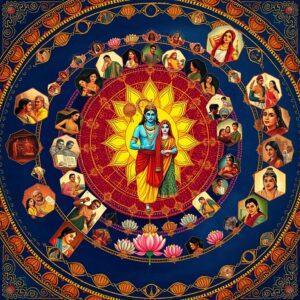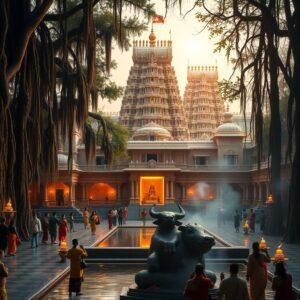
Pudukkottai, nestled in Tamil Nadu, boasts a vibrant history deeply intertwined with the Tondaiman dynasty. Founded by Raghunatha Tondaiman, this dynasty significantly shaped the region’s cultural, economic, and social landscape. From grand temples to bustling marketplaces, the Tondaimans’ influence is evident throughout Pudukkottai’s rich tapestry.
Historical Overview of the Tondaiman Lineage
Rise and Reign
The Tondaiman dynasty emerged in the 17th century under the leadership of Raghunatha Tondaiman. Their rule, marked by strategic alliances and occasional conflicts with neighboring powers like the Nayaks of Thanjavur, extended until India’s independence. This era witnessed remarkable growth and transformation in Pudukkottai.
Administrative Prowess
The Tondaimans implemented effective administrative policies that fostered economic stability and growth. They prioritized infrastructure development, constructing magnificent forts, temples, and irrigation systems that continue to stand as testaments to their reign. Their focus on education further contributed to the region’s progress.
The British Era
During the British colonial period, the Tondaimans adapted to the changing political landscape. They embraced social reforms and continued their patronage of arts and literature, ensuring the preservation of Pudukkottai’s cultural heritage. This period saw a blend of traditional values and modern influences.
Tondaiman Caste and Social Dynamics
Origins and Social Standing
The Tondaiman caste, primarily Kshatriya, held a prominent position within Tamil Nadu’s social hierarchy. Traditionally involved in local governance and upholding societal norms, they played a crucial role in shaping community life.
Marital Unions
Strategic matrimonial alliances were instrumental in consolidating the Tondaimans’ power and influence. These alliances forged strong ties with other prominent families, further strengthening their social and political standing.
Cultural Contributions
The Tondaiman caste actively participated in religious ceremonies and extended their patronage to temples, contributing significantly to the region’s spiritual and cultural landscape. Notable figures from the caste made significant contributions to various aspects of society.
Cultural Legacy of the Tondaimans
Literary and Artistic Flourish
The Tondaimans were ardent patrons of Tamil literature, poetry, music, and dance. Under their support, art forms like Bharatanatyam and Carnatic music thrived, enriching the cultural fabric of the region.
Architectural Marvels
The Tondaimans’ architectural contributions are evident in the magnificent temples, palaces, and other structures they commissioned. These architectural marvels, including the Brihadeeswarar Temple, stand as testaments to their artistic vision and craftsmanship.
For those seeking to deepen their understanding of South Indian temple architecture and rituals, Poojn.in offers a wide array of puja items and resources. From traditional brass vessels to pure cotton vastrams, our collection helps you connect with the rich cultural heritage of the region.
Crafts and Textiles
The Tondaimans’ patronage extended to local artisans, leading to the flourishing of crafts and textile industries. Their influence is reflected in the intricate designs and techniques that continue to be practiced in Pudukkottai.
Economic Progress and Development
Agricultural Innovations
The Tondaimans implemented irrigation projects and other agricultural initiatives that significantly boosted agricultural productivity and contributed to the region’s economic prosperity.
Infrastructure Development
The development of roads, marketplaces, and other infrastructure under the Tondaimans facilitated trade and commerce, further enhancing Pudukkottai’s economic growth.
Religious and Spiritual Influence
Temple Construction and Patronage
The Tondaimans actively supported the construction and maintenance of temples, fostering religious and spiritual practices in the region. Temples like the Thirumayam Fort Temple stand as examples of their devotion and architectural patronage.
Poojn.in offers a wide selection of incense sticks and deity idols to enhance your spiritual practices and create a sacred atmosphere in your home.
Religious Harmony
The Tondaimans promoted religious tolerance and integration, fostering a harmonious coexistence of various religious practices and festivals in Pudukkottai. Their support of the Bhakti movement further contributed to spiritual growth in the region.
Preservation of Traditions
The Tondaimans played a vital role in preserving ancient rituals and traditions, ensuring that these cultural practices remained an integral part of Pudukkottai’s heritage.
Conclusion
The Tondaiman dynasty’s legacy is deeply etched in the historical and cultural landscape of Pudukkottai. Their contributions to governance, economic development, art, architecture, and religious life continue to shape the region’s identity. Their reign stands as a testament to their vision, leadership, and commitment to the well-being of their people.


